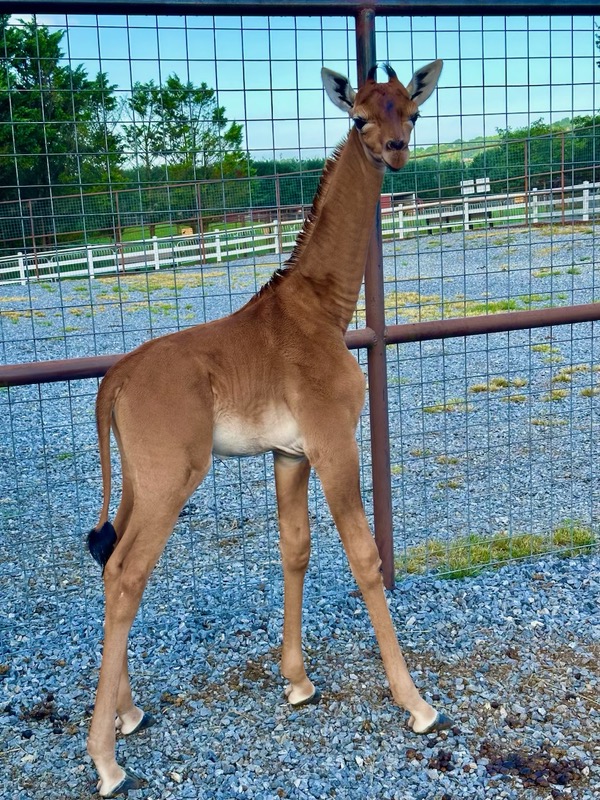Nature is pretty good at coming up with clever color patterns to help animals hide from or deter predators, keeping them camouflaged against a backdrop of rainforest trees or tall grasses. Sometimes, however, genetic mutations can throw a spanner in the works, creating unusual variations of typical animal colors. Now, a new giraffe calf has entered the world and she’s about as unusual as you can get: the little female has no spots.
At Brights Zoo in Limestone, Tennessee the pitter patter of newborn giraffe hooves was heard on July 31, but surprisingly the young female was born completely solid in color. The zoo’s experts believe she is currently the only solid-colored reticulated giraffe in the world. The last spotless giraffe was reportedly born in 1972 in Tokyo and named Toshiko.
Staff report she is doing well under the care of her mother and already stands at 1.82 meters (6 feet tall). As for her name, Brights Zoo launched a vote today on its Facebook page to choose her name.

Brights Zoo is holding a competition to name her on its Facebook page.
Image courtesy of Brights Zoo
“The international coverage of our patternless baby giraffe has created a much-needed spotlight on giraffe conservation. Wild populations are silently slipping into extinction, with 40% of the wild giraffe population lost in just the last three decades,” said Tony Bright, founder of Bright’s Zoo, in a statement sent to IFLScience.
In the wild reticulated giraffes live across small populations in Kenya with restricted numbers thought to roam in Somalia and south Ethiopia. Because of their fragmented distribution, they are sted as Endangered by the IUCN. Their spotted coat helps camouflage their bodies against the vegetation of the savannah and also serves as a heat loss system, according to the Giraffe Conservation Foundation. It’s thought the dark spots help regulate their heat because there are large sweat glands underneath them and the unique way blood vessels are arranged around them. Each pattern is unique and it’s thought they are inherited from their mothers.
“Bright’s Zoo is actively joining the fight to save giraffes by not only donating to worthy organizations like Save Giraffes Now, working in Africa to preserve these gentle giants, but also contributing to the genetic diversity and survival of the species through their own very successful breeding program in Tennessee,” continued Bright.
You can help name the unique youngster by voting on Brights Zoo’s Facebook page. So far the choices have been narrowed down to four names: Kipekee meaning “unique”, Firyali meaning “unusual” or “extraordinary”, Shakiri meaning “she is most beautiful”, and Jamella meaning “one of great beauty”. Voting is open until September 4 when the name will be announced.
Source Link: Spotless Giraffe Born At Tennessee Zoo Thought To Be Only One In The World